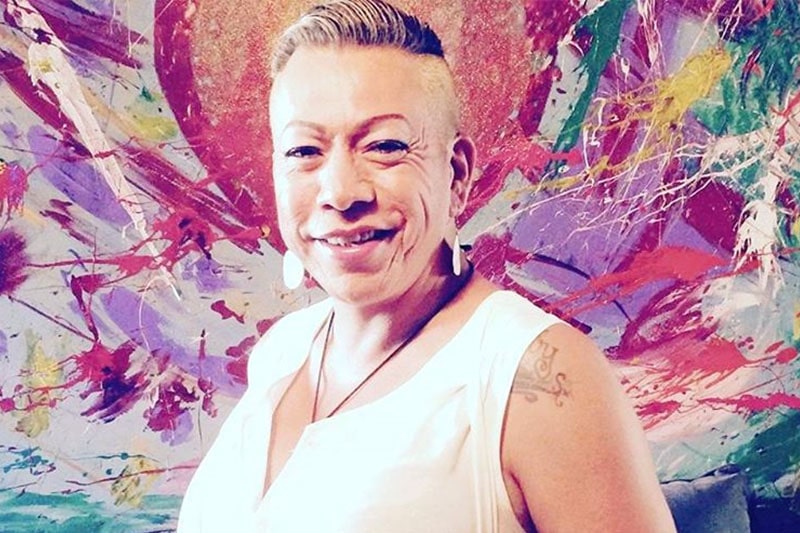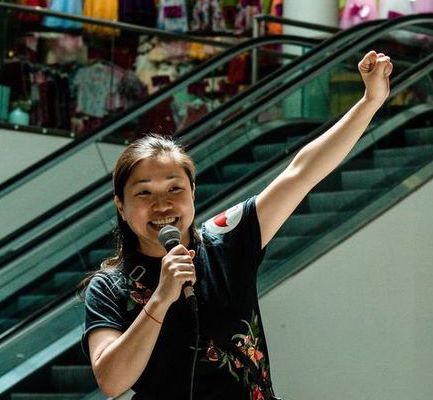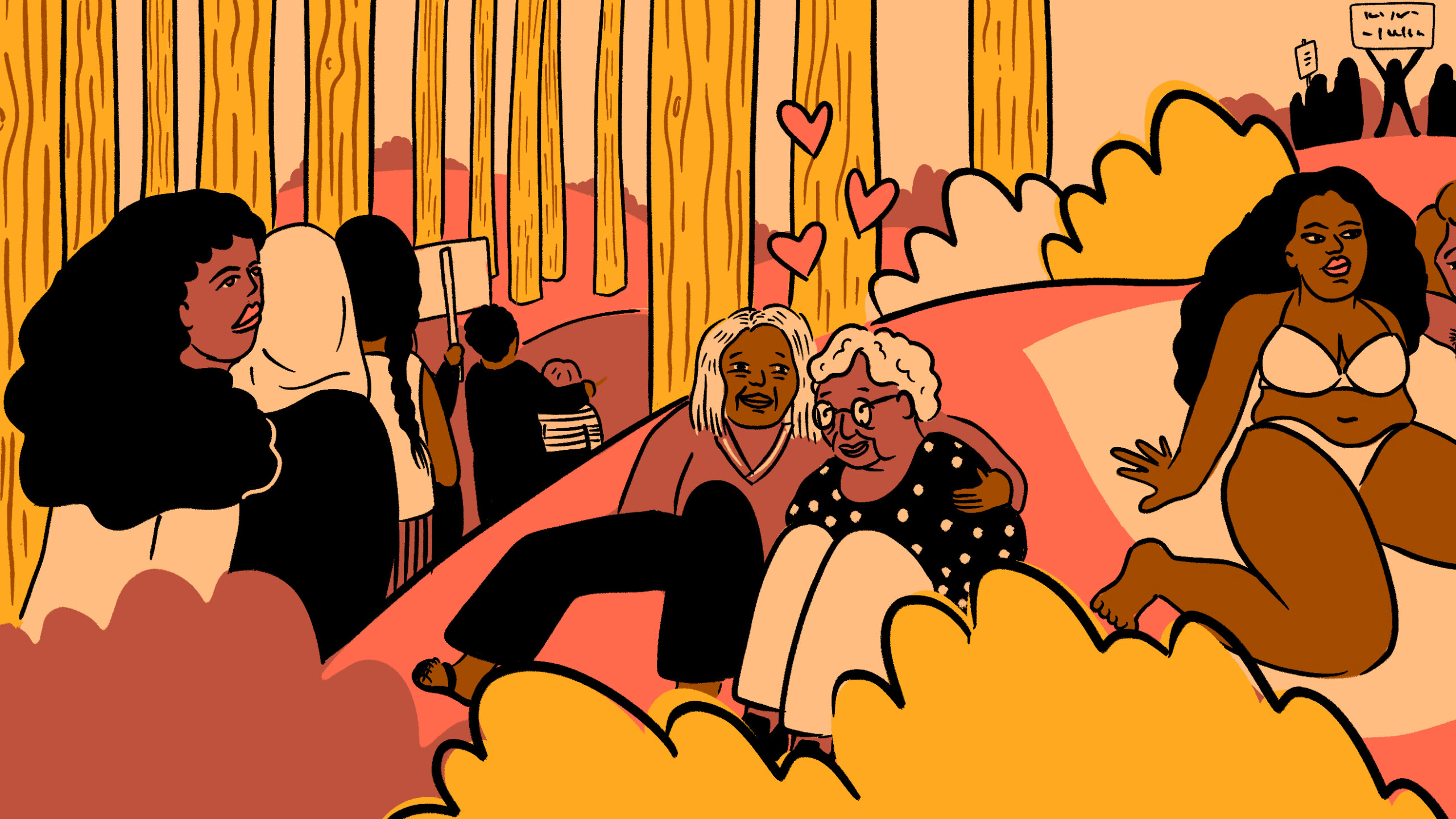This year marks the 50th anniversary of Xtra’s publisher, Pink Triangle Press, which was established in 1971 in Toronto, Canada. The aim of the press’ founding collective was to give a voice to the political and social concerns of gay men and lesbians and to advance the cause of sexual liberation. In November 1971, they launched the influential (and occasionally infamous) gay liberation newspaper, The Body Politic. Fifty years later, Xtra is exploring what sexual liberation means in the 21st century through the six-part series Protest and Pleasure by activist and writer Chanelle Gallant.
One of the stranger moments of 2020 was when the straights discovered glory holes. A few governments really made a name for themselves—presumably unintentionally—for their public health recommendations on sex during COVID-19: New York City encouraged its locals to “make it a little kinky” with sexting and video dates; British Columbia upped the ante with the suggestion to “use barriers, like walls (e.g., glory holes),” as a safer sex practice.
Other pandemic policies, however, were not nearly as focused on sensibly balancing health and safety with protecting rights and freedoms. Take the border, for instance.
Canadians have rarely agreed on anything as much as they did about closing the borders in 2020. A full 90 percent of those polled in July supported shutting down access to the U.S. “It’s all about short term pain, long term gain,” said the mayor of Niagara Falls, Ontario. With little information about what measures would most effectively keep us safe, people fell back on the cliché that “good fences make good neighbours.” Other nations saw it similarly: 189 countries also shut their borders in 2020.
But what these policies missed was that some people still had to travel. Migrant farm workers whose families’ survival depends on their incomes had to go work in dangerously under-regulated worksites and live in overcrowded housing. People fleeing conflict, climate disaster and persecution continued to seek safety and asylum, but nearly 60 countries shut their borders to them—while continuing deportations. Even those fighting for their lives on boats in the Mediterrean sea were not offered the most basic, life-saving support.
Why were people hooking up afforded better public health policy than migrants?
In “Protest and Pleasure,” I’m looking at how sexual liberation is part of the collective struggle against all forms of oppression and exploitation. In the last column, I spoke with activists challenging us to rethink whether policing could ever lead to our sexual safety. In this installment, I’m looking at state borders and their relationship to our sexual liberties and rights.
To help me understand the interconnections between sexual liberation and migrant justice, I spoke with two incredible activists: Bamby Salcedo and Elene Lam. Salcedo, an undocumented migrant herself, directs one of the largest trans Latinx/Latin@ networks in the U.S., the Trans Latin@ Coalition. Lam has founded over a dozen migrant sex worker projects internationally and is the director of Butterfly: Asian and Migrant Sex Workers Support Network, the first project of its kind in North America.
What emerged from our conversations was a picture of how the state defines some bodies, sexualities and genders as illegal when it suits them, and the irrepressible resistance of migrants who insist on the right to determine their own destinies and define themselves
But before we get to that, it’s first worth asking why we even have borders. Just like with policing, it’s supposed to be “common sense” that we need state borders so that people will know where they belong. We need rules about where one country ends and another begins and about who can claim nationhood and “home.” Makes sense, doesn’t it?
Turns out, it really doesn’t. One of the most important lessons of migrant justice thinkers and movements is that borders don’t do what we are told they do. State borders (as opposed to Indigenous national borders) don’t create stable or harmonious societies. What they are meant to do, and actually do, is protect the wealth and power of the people at the top, the ones with all the economic, political and military power. A key strategy of this system is to tightly restrict human movement to ensure a steady pool of super low-wage and disposable workers.
Corporations want to squeeze every dollar they can out of migrants’ minds and bodies but they couldn’t do this without the help of governments who create a special category of human called “the migrant,” who, unlike “the citizen,” can be denied rights and services. Human rights, labour protections, education, social services, the minimum wage: none are assured to migrants.
“Migrants are denied rights to safety and democracy because of who they are, not because they have crossed a border.”
This is why migrant workers in agriculture, meat packing and care facilities in Canada and elsewhere were devastated by COVID-19 outbreaks and forced to risk their lives during the pandemic; they were denied the rights and the resources to refuse unsafe work. Around the world, millions of migrant workers don’t even have the right to leave their employer (or leave the house in the case of domestic workers) without risking deportation. It is modern day, state-sanctioned indentured labour.
Migrants are denied rights to safety and democracy because of who they are, not because they have crossed a border. Look at those rich globe-trotters at the very top: their movement is encouraged and even championed. The U.S., Europe and Canada have a two-tiered system where there are effectively no borders for the wealthy. If you’ve got enough money to invest or highly sought-after talents in areas like tech, science, entertainment or finance, then your family can move (or stay) wherever you like.
Corporations, too, can pick up and move just about anywhere they want, even when that means economically devastating the place they leave only to bring ecological disaster and sweatshop conditions to a new location with cheaper labour, lower taxes and fewer regulations. But you never hear politicians or pundits ominously warning about the dangers of a borderless world when it comes to multinational businesses, off-shore investments and luxury vacation properties scattered around the globe.
For those at the bottom, state borders create misery on an unimaginable scale. Former U.S. president Donald Trump’s racist trumpeting about “building a wall” along the U.S.-Mexico border and his policy of separating families and detaining children in literal cages was only one of the more public versions of the violence of borders. But this was not as unprecedented as many people thought.
Former U.S. president Barack Obama was named “deporter in chief” for the record level of deportations under his administration. Annually, thousands die as they are displaced from their homes and forced to undertake clandestine journeys across water and land, and hundreds of thousands of people are arrested for crossing borders or are held in detention centres and “stateless” refugee camps.
It’s never good for democracy when corporations and the ultra-rich get to make the rules about who is eligible for rights and protections and the governments do their bidding. But does this affect our sexualities? Yes, because those at the top also make the rules about which kinds of bodies, families, sexualities and genders are considered legal and legitimate and which kinds are excluded. And as long as those at the top are the ones to decide whether a person is “legal” and deserving of basic human rights, then none of us are safe.
“The relationships between our sexuality and our migration experiences are intertwined. You can’t separate one from the other.”
—Bamby Salcedo, in conversation with the author, May 2021
Typically, the border only arises in relation to sexuality in stories about LGBTQ+ people leaving dangerous homelands for somewhere safer in the West. Many of these people are seeking asylum from persecution due to their sexual orientation or gender identity—some 69 countries in the world criminalize forms of gay sex, and a handful of those nations prescribe the death penality for same-sex sexual acts.
Since most LGBTQ+ refugees to Canada and the U.S. come from the Global South, the implication—whether stated or not—is that the Global North is enlightened where other parts of the world are not. In Europe for example, gender equality and LGBTQ+ rights are often pitted against migrant rights and are used as an argument for limiting immigration from particular Global South countries. Muslim immigrants, especially, are stereotyped as being a threat to progressive values.

Credit: Courtesy of Bamby Salcedo
In Quebec, laws prohibiting public religious symbols are ostensibly to protect “secular values,” but are, in fact, Islamophobia and xenophobia in a tissue-thin disguise. This same hate is behind the recent attack on three generations of a single Muslim family who were killed in what appears to have been a pre-meditated murder by a white supremacist young man.
Canada, the U.S. and Northern European nations love to present themselves as the beacon of #loveislove positivity, but this ignores the increasing violence directed towards LGBTQ2S+ people in those places. Hate crimes against LGBTQ+ people in Germany rose by 36 percent in 2020; in the U.S., 27 trans people were killed in just the first five months of 2021.
More than that, the not-so-subtle racism of stereotyping countries with a majority of people of colour as intolerant shifts responsibility off the ways that Europe, Canada and the U.S. have fermented the oppression of LGBTQ2S+ people through colonization and imperialism then cast themselves as the good guys.
Salcedo traces the history of colonization to her oppression as a trans Latina. “Everything started with the invasion of Europeans in the Americas and in other places,” she says. “Indigenous people had their own customs which included a lot of sexuality. But when the invaders colonized, there was an indoctrination of converting people to Christianity that has influenced how we think and live. For many of us, even when we migrate up to the U.S., the criminalization we face as trans people comes out of that colonial Christianity.”
“We leave our countries for the U.S. with this idea of chasing the American dream, only to come here and find the American nightmare.”
Many Indigenous folks were happily in queer partnerships long before European Christians invaded and attempted to wipe out entire genders, sexualities and families through criminalization and murder. According to research by the International Lesbian, Gay, Bisexual, Trans and Intersex Association (ILGA), more than half of the countries that criminalize homosexuality today are former British colonies. But it wasn’t until 2018 that a British prime minister expressed “regret” (but not an apology!) for “both the fact that such laws were introduced, and the legacy of discrimination, violence and even death that persists today.”
The “regret” of the British and other colonial and imperialist governments hasn’t led to better conditions for LGBTQ2S+ people who migrate and who are still criminalized and vilified for their race, gender identity or citizenship status. As Salcedo describes it, “For many, especially trans women, we are criminalized for who we are. This is one of the reasons we leave our countries for the U.S. with this idea of chasing the American dream, only to come here and find the American nightmare.”
When it comes to migrant workers, the state wants a vulnerable workforce that it can coerce into cheap labour and then dump it at will. Sexual freedom and fluidity are not compatible with that system,and neither are third gender, trans people and those with distinctly unfamiliar forms of love and kinship.
So the state defines the borders not just around land, but around family units, around an individual’s gender expression and around their sexuality.
Take plural marriage and sex work. Many LGBTQ2S+ people are polyamorous and sex work is an economic safety net for many of our community members as well, especially trans women. But polyamorous people cannot get legal recognition for more than one partner and sex workers are criminalized. Why does the state care about how many consensual sexual partners or spouses we have? If you want three wives, what’s it to anyone? If you want to choose sex work over a shitty retail job, why is the government forcing you to keep working at the mall for less than a living wage?
Both are criminalized on the pretext of protecting women. But as feminists have pointed out for years, women are perfectly capable of distinguishing between violence and consent to a plural marriage. Same for selling sex. And it’s hardly as though monogamous marriages and unpaid sex keep women safe.
The real agenda behind the absurd and harmful criminalization of consensual sex and partnership is likely found in the fact that certain types of plural marriage, such as polygamy, are largely practiced in Asia and Africa, where, according to the U.N., it is accepted or legal in some 41 countries. That’s also why trans and queer people can also forget about trying to sponsor a close friend. “Chosen” family doesn’t count, no matter how deep the bond or profound the dependency, because this would open the immigration door—even by just a crack—to the extended, non-European kinship networks of people of colour.
Similarly, most sex workers in Europe and North America are migrants. And criminalizing sex work gives governments another reason to exclude working class people of colour and restrict them to hyper-exploited work. In pursuit of exploiting as much racialized labour as possible, the state has created an unfair system with the power to curtail everyone’s sexual freedom.
But migrants continually defy restrictions and use sexuality and movement to disrupt social and political gatekeepers. As Lam says, “Sex and migration are both so powerful. They are full of energy and they are challenging the system and oppression. It’s no surprise that the people in power want to control migration. They fear migration because this threatens power. They want money to flow in, a particular skill set or people who can be useful because they can be exploited, who will be quiet. They don’t want people with the power and resources to challenge them.”
She goes on to describe the power of sex to challenge oppression. “At an individual level,” she says, “sexuality is the opportunity to be true to yourself, to have genuine connection to others, to gain energy, power and courage. And at the level of resistance to oppression, sex and sexuality can give you access to different resources, like safety, food or immigration resources. But those at the top want people to sacrifice themselves to whichever family system best supports the economy. We [migrants] challenge monogamous relationships. In the patriarchal society, we only have limited imagination of what love is, but sex opens the door to the diverse nature of love.”

Credit: Kelly Lui
Salcedo shares Lam’s vision for how trans migrant’s sexuality can be a source of liberation and freedom. “What we [trans migrants] bring is beautiful,” she says. “Migrants teach us that sexuality is fluid. We can adapt our sexual attraction and practices to whatever culture we’re living in. There are these barriers that don’t allow us to be ourselves. In the ideal world, people are free to express themselves, whether through their sexuality or how they present to the world. And that’s the world that I would like to live in.”
Borders do not defend human freedom and safety; they are a fortification against the power of solidarity between people. No one should be pushed out of their homelands because of the criminalization of their gender or sexuality. And freedom, including sexual freedom, demands that no human ever be defined as “illegal” and lose their right to control their own bodies, sexuality, work, family or safety.
Migrant people are organizing against the rules that define them and deny them rights and services. They are bringing traditions of resistance and co-operation to challenge the nationalism that divides working class people around the world. They are going after the root problem: an unfair and abusive system where a small group of people in power get to decide which humans are “legal” and worthy of rights and which ones are not.
I asked Salcedo and Lam how we can support the rights of migrant LGBTQ2S+ people. Here are a few things they suggested.
- Challenge the idea that it’s acceptable for people to be denied human rights because they crossed a border. “The first thing is to really look at our humanity, seeing each other as people,” says Salcedo. Lam suggested that we support campaigns for full and permanent immigration status for all and Sanctuary City.
- Respect Indigenous people’s land. Learn how to be in right relationship with the land, yourself and each other. Migrant justice is about building solidarity, reciprocal relations and contributing. Find the stories of gender and sexual diversity within Indigenous communities.
- Include and respect migrants in your movement. Support the leadership of migrant LGBTQ2S+ people, in particular migrant trans women. That also means doing everything we can to eliminate the violence that migrant trans women experience.
I’ll end with a comment that Salcedo made in our interview: “Colonizers attempted to erase trans people, people with third genders, Two-Spirit people. That was part of the indoctrination, an attempt to erase us. But in spite of all of that, we are resilient and still here.”


 Why you can trust Xtra
Why you can trust Xtra


